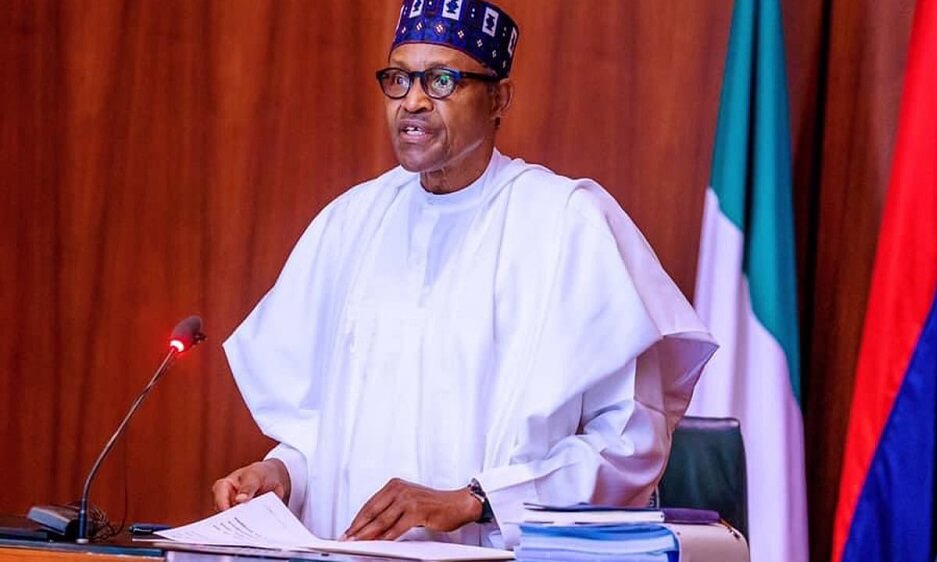The Federal Government will continue to borrow to raise the needed amount to finance the fuel subsidy regime, the Presidency has said.
It argued that with the huge amount needed to subsidize the price of Premium Motor Spirit, the country may be left with no other choice than to continue borrowing to shoulder its fiscal burden.
Advertisement
The President’s Special Adviser on Media and Publicity, Femi Adesina, said this when he featured on Channels Television’s Sunrise Daily programme monitored by THE WHISTLER.
Between January and November last year, the Nigerian National Petroleum Company Ltd subsidised the price of Premium Motor Spirits for Nigerians with the sum of N1.2trn
The NNPC in its report to the Federation Account Allocation Committee had said it incurred the sum of N25.37bn on subsidy in February. No amount was spent subsidizing the product in the month of January.
The amount moved up to N60.39bn and N61.96bn in March and April, before hitting N126.29bn and N164.33bn in the months of May and June.
Advertisement
For the month of July, the Corporation incurred the sum of N103.28bn as subsidy on PMS, while the figure went up to N173.13bn, N149.28bn and N163bn in August, September and October respectively.
The Nigeria Labour Congress had threatened to embark on industrial action if the government went ahead to implement an increase in the price of Premium Motor Spirit.
The Congress in a petition to the Governors of the 36 states had called on the federal government to announce the withdrawal of its plans to increase the pump price of petrol.
Following the threat, the federal government suspended the implementation period for fuel subsidy removal to forestall supply disruptions and guide market readiness preparatory to migration to the deregulated pricing regime.
President Muhammadu Buhari following consultations with stakeholders, had agreed to an extension of the statutory period for the implementation of the removal of subsidy on PMS in line with existing laws.
Advertisement
But speaking on the development, Adeshina described the planned removal as ill-timed because of the hardship that it will cause to Nigerians.
He said, “It is done because as the minister (of finance) stated, the timing is not auspicious, inflation is still high. In the past eight months, we saw inflation reducing but the last month, it went up again; further consultations need to happen with all the stakeholders.
“The timing is not right, it will exacerbate the hardship of the people and the President genuinely cares.
“Politics is a part of our lives, but elections will just be one event in the life of the country. When elections come, they go, the country continues. This fuel subsidy, whether it stays or goes, is going to have a serious impact on the economy.
“Head or tail, Nigeria will have to pay a price; it is either we pay the price for the removal in consonance and in conjunction with the understanding of the people.
“The other cost is that borrowings may continue and things may be difficult fiscally for both the state and the federal government. You know how much could have been saved if the subsidy was removed and how it could have been diverted to other spheres of our lives, we have to pay a price.”
Advertisement
Except the Federal Government comes up with more innovative ways of shoring revenue within the shortest possible time, the administration of President Muhammadu Buhari may leave the country with a debt burden of N47.24trn by 2023.
The N47.24trn indebtedness is based on an analysis of the Federal Government’s borrowing plan as encapsulated in the Medium-Term Expenditure Framework/Fiscal Strategy Paper.
THE WHISTLER analysis showed that his administration has projected to borrow the sum of N14.328trn within a three-year period covering 2021 to 2023.
When this amount is added to the country’s debt burden of N32.92trn as of the end of December 2020, and with no plan of debt repayment in sight, it therefore implies that by 2023, the country will be left with a total indebtedness of N47.248trn.
A breakdown of the N14.32trn fresh borrowing showed that the sum of N7.164trn is expected to be sourced from the domestic debt market, while the balance of N7.164tn is being projected to be raised from foreign creditors.
Further breakdown of the N14.328trn fresh borrowing showed that the government will be raising N4.686trn in 2021, N4.892trn in 2022 and N4.75trn in 2023.
Nigeria’s pubic debt stock in recent times had assumed an upward trend as a result of the drop in revenue generation.



